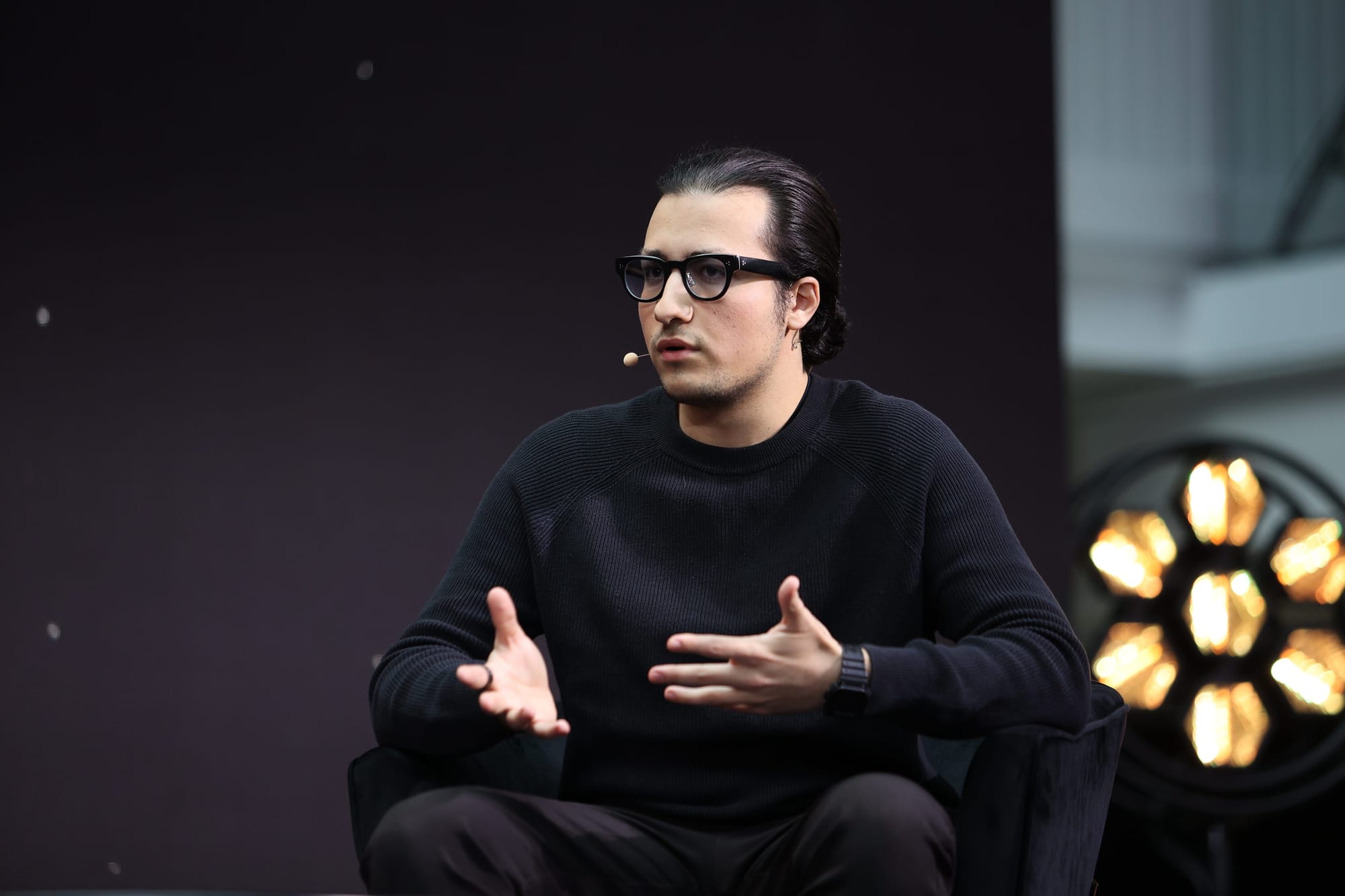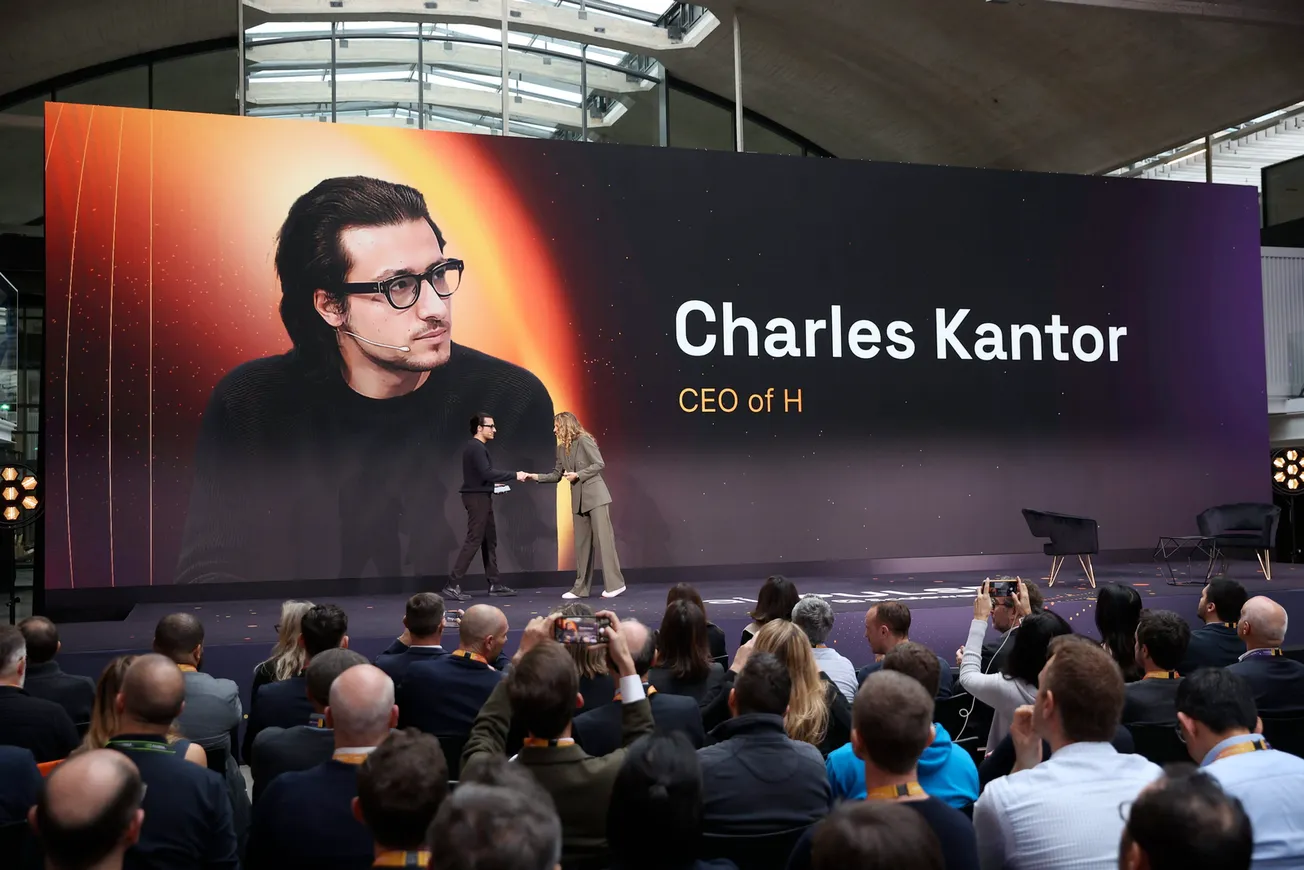After a year of semi-secretive development, French artificial intelligence startup H Company has unveiled a suite of autonomous AI agents that it claims can outperform offerings from OpenAI, Anthropic, and Google while costing up to 5.5 times less to operate.
The company's official emergence from stealth mode is part of a broader shift in the AI landscape, where the focus is moving beyond chatbots to systems that can autonomously execute tasks in the real world.
The timing couldn't be more critical. As businesses struggle to find meaningful returns on their AI investments beyond basic conversational interfaces, H Company is betting that the future belongs to what CEO Charles Kantor calls "action models" – AI systems designed not just to talk, but to work.
"The vision has always been to build this next generation of intelligence, one that goes beyond conversations," Kantor explained in a recent interview. "Execution is the key to what we're seeking in terms of AI. How can you have an AI that interacts with files, that interacts with applications, that interacts with business, tools that interact with just knowledge generally, and that can perform some tasks and actions on your behalf?"

From Secretive Startup to Market Challenger
H Company burst onto the AI scene last year with an impressive $220 million seed round, one of the largest in European AI history. The funding came despite the company maintaining a somewhat mysterious profile, with investors including prominent figures like Eric Schmidt and Yuri Milner backing the venture based largely on the team's vision and early technical demonstrations.
The company faced early turbulence when co-founders Karl Tuyls, Daan Wierstra, and Julien Perolat departed just three months after the fundraising, citing "operational differences." However, under Kantor's leadership, the company has pressed forward with its ambitious plans to build what it calls an "operating system for AI actions."
The startup has been developing its technology using a large training cluster from European cloud provider Scaleway, positioning itself as a European alternative to the AI giants dominating from Silicon Valley and China. This geographic positioning has proven advantageous, with Kantor noting France's strong talent pool in mathematics and computer science.
The Agent Revolution Takes Hold
H Company's emergence comes at a pivotal moment in AI development. While much of the industry's attention over the past two years has focused on large language models and chatbots, a new wave of companies is racing to build AI systems that can perform actual tasks rather than just generate text.
Major tech companies have taken notice. Anthropic recently introduced its "Computer Use" capability, OpenAI has rolled out its "Operator" agent, and Google announced "Project Mariner." However, Kantor argues that most companies are approaching the challenge from the wrong angle.
"Even if you have a lot of people speaking about agentic AI now, you don't have so many people speaking about computer use agents. It's really hard to build," Kantor said. The difficulty lies not just in creating AI that can understand interfaces, but in building systems reliable enough for businesses to trust with important tasks.
Kantor sees this as a validation of H Company's early bet on the space. "I think it's really good to have competition, because one, it's reassuring. One year ago, I was potentially the only crazy guy speaking about action models.
Three Agents, One Vision
H Company's product suite centers around three specialized agents, each designed for different aspects of workplace automation:
Runner H serves as the orchestration platform, acting as what Kantor describes as "the master orchestration, like the maestro" that can coordinate complex workflows across multiple applications and services. The system can handle everything from syncing CRM data between Google Sheets and HubSpot to drafting and sending personalized emails through Gmail.
Surfer H focuses specifically on web automation, designed to navigate and interact with websites like a human user would. The company claims this agent achieves 92.2% success rates on the WebVoyager benchmark, surpassing offerings from the major tech companies. "We are really proud to claim that we outperform OpenAI, Anthropic, and Google," Kantor said.
Tester H represents the company's first vertical specialization, automating quality assurance testing for websites and applications. The agent can generate test scenarios, create user flow diagrams, and execute automated testing sequences, potentially replacing much of the manual work traditionally required for QA processes.
Underlying all three agents is Holo-1, H Company's proprietary vision-language model that the company has open-sourced. This model enables the agents to understand and interact with visual interfaces across different platforms, from desktop applications to mobile devices.
Cost Efficiency as Competitive Advantage
Perhaps most significantly for enterprise adoption, H Company claims to have solved one of the biggest challenges facing AI agents: cost. Traditional AI agents that process images and interact with interfaces are expensive to operate, often making them impractical for routine business use.
"Cost efficiency is kind of our top priority from a research perspective," Kantor said. The company says it has managed to "reduce by up to 5.5x the cost of these agents" compared to alternatives, potentially making automated task execution economically viable for a much broader range of use cases.
This cost advantage appears to be resonating with potential customers. "We have massive inbound interest, and not just in France, but internationally," Kantor said. "Because when people or enterprises see an agent that actually drives productivity in a very specific segment, then it becomes real."
Revolution of Use Cases
Kantor believes the market has reached an inflection point where both the technology and business demand have aligned for AI agents to become mainstream. "I think we're living right now in what I call the 'revolution of use cases,'" he said.
This "revolution of use cases" is driven by the proliferation of digital tools and interfaces that AI agents can now reliably interact with. Unlike previous automation solutions that required specific APIs or integrations, H Company's agents can work with any web-based interface, making them potentially universal automation tools.
The company is already seeing this play out in its quality assurance vertical, where Tester H is being used by enterprise customers to automate testing workflows that previously required dedicated QA teams.
Building an Ecosystem
Looking ahead, H Company plans to expand beyond its initial three agents while building an ecosystem around its core technology. The company has open-sourced its Holo-1 model and plans to release additional components, inviting developers to build specialized applications for different industries.
Kantor envisions H Company eventually offering "a fleet of agents orchestrated by us to boost the full workspace workforce experience," suggesting the company sees itself becoming a comprehensive platform for workplace automation rather than just a provider of individual tools.
The challenge will be executing this vision while maintaining the performance and cost advantages that differentiate H Company from larger competitors. As the AI agent space becomes increasingly crowded, the company's ability to deliver on its promises of reliable, cost-effective automation will determine whether it can maintain its early lead in what is becoming the next major battleground in artificial intelligence.








